Filter by

Journal of Democracy, Volume 24 Number 2, April 2013
- Edition
- -
- ISBN/ISSN
- 1045-5736
- Collation
- -
- Series Title
- -
- Call Number
- -
- Edition
- -
- ISBN/ISSN
- 1045-5736
- Collation
- -
- Series Title
- -
- Call Number
- -

Multicultural citizenship education in Indonesia: The case of a Chinese Chris…
This study investigates how multicultural citizenship education is taught in a Chinese Christian school in Jakarta, where multiculturalism is not a natural experience. Schoolyard ethnographic research was deployed to explore the reality of a ‘double minority’ — Chinese Christians — and how the citizenship of this marginal group is constructed and contested in national, school, and familial disc…
- Edition
- -
- ISBN/ISSN
- 0022-4634
- Collation
- -
- Series Title
- -
- Call Number
- -
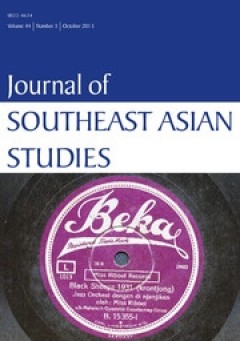
The Great Depression and the changing trajectory of public education policy i…
From the turn of the century up until the 1930s, public education under Dutch rule in Indonesia developed both quantitatively and qualitatively, but this expansion was interrupted, and even reversed, by the onset of the Great Depression. Focusing on schoolteachers in particular, this essay examines the trajectory of education policies in colonial Indonesia in response to the crisis, from the in…
- Edition
- -
- ISBN/ISSN
- 0022-4634
- Collation
- -
- Series Title
- -
- Call Number
- -

Southeast Asia in the age of jazz: Locating popular culture in the colonial P…
Referencing insights from Cultural Studies and taking a jazz-age perspective, this essay aims to historicise and ‘locate the popular’ in colonial Indonesia and the Philippines. A new cultural era dawned in the 1920s urban hubs of Southeast Asia, associated with the creation of novel forms of vernacular literature, theatre, music and their consumption via the print press, gramophone, radio broad…
- Edition
- -
- ISBN/ISSN
- 0022-4634
- Collation
- -
- Series Title
- -
- Call Number
- -

Patriotic hygiene: Tracing new places of knowledge production about malaria i…
This article examines knowledge production about malaria in colonial and postcolonial Vietnam. During the 1920s and 1930s, medical doctors cooperated with plantation managers in order to develop industrial hygiene techniques consisting of environmental modification and quinine use. By the 1930s, changing motivations, in particular racial hygiene and patriotism, drove malaria control efforts. Th…
- Edition
- Vol. 44, Number 3, October 2013, p.423 - 443
- ISBN/ISSN
- 0022-4634
- Collation
- -
- Series Title
- Journal of Southeast Asian Studies
- Call Number
- -

The meaning of dukun and allure of Sufi healers: How Persian cosmopolitans tr…
For contemporary Malay/Indonesian speakers, dukun signifies an indigenous healer. Etymologically, however, the word dukun is not native to Malay/Indonesian. Some say dukun is Arabic, but this article claims it is more Persian than Arabic. When fifteenth-century Persian settlers brought the proto-form of the word dukun to the Malay Archipelago, they also brought cosmopolitan notions of Sufism, f…
- Edition
- Vol. 44, Number 3, October 2013, p.400 - 422
- ISBN/ISSN
- -
- Collation
- -
- Series Title
- Journal of SOutheast Asian Studies
- Call Number
- -

State formation and the evolution of naval strategies in the Melaka Straits, …
The Strait of Melaka and connected waterways have been critical to, and directly affected, the formation of littoral states, societies and economies in eastern Sumatra, the Riau Islands, the Malay Peninsula, and Singapore. The history and nature of statehood in the region is interrelated to the way in which naval capabilities evolved, but, as argued in this article, perhaps not in the straightf…
- Edition
- Vol. 44, Number 3, October 2013, p.380 - 399
- ISBN/ISSN
- 0022-4634
- Collation
- p. 380-399
- Series Title
- Journal of Southeast Asian Studies
- Call Number
- -

Journal of Southeast Asian Studies, Volume 44, Number 3 October 2013
- Edition
- -
- ISBN/ISSN
- 0022-634
- Collation
- -
- Series Title
- -
- Call Number
- -
- Edition
- -
- ISBN/ISSN
- 0022-634
- Collation
- -
- Series Title
- -
- Call Number
- -
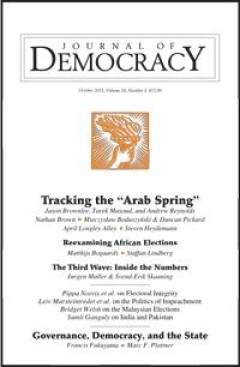
Journal of Democracy, Volume 24, Number 4, October 2013
- Edition
- -
- ISBN/ISSN
- 10455736
- Collation
- -
- Series Title
- -
- Call Number
- -
- Edition
- -
- ISBN/ISSN
- 10455736
- Collation
- -
- Series Title
- -
- Call Number
- -
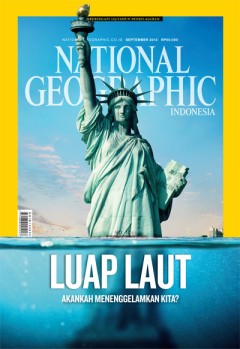
National Geographic Indonesia, September 2013
- Edition
- -
- ISBN/ISSN
- -
- Collation
- -
- Series Title
- -
- Call Number
- -
- Edition
- -
- ISBN/ISSN
- -
- Collation
- -
- Series Title
- -
- Call Number
- -
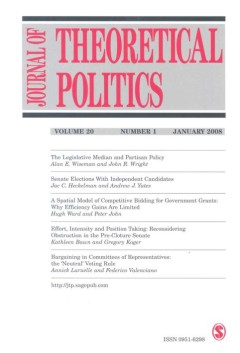
Informative Party Labels With Institutional and Electoral Variation
We study a model of party formation in which the informativeness of party labels and inter-party ideological heterogeneity are endogenously and jointly determined in response to electoral incentives. Parties use screening to increase the cost of affiliation for politicians whose ideal points diverge from the party platform. Because affiliation decisions are endogenous, increased screening decre…
- Edition
- Vol. 20, No. 3, Page 251-273
- ISBN/ISSN
- 0951-6298
- Collation
- -
- Series Title
- Journal of Theoretical Politics
- Call Number
- -
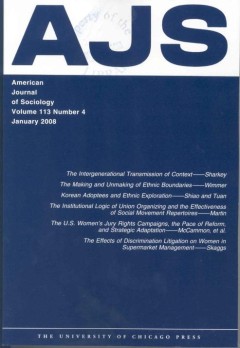
From the ¡Ya Basta! to the Caracoles: Zapatista Mobilization under Transitio…
This study draws on the literature on political opportunity structures to investigate the effects of local and national factors on the Zapatista cycle of protest from 1994 to 2003. A cross-sectional, time-series, negative binomial model for event counts is used to analyze the ebb and flow of Zapatista protests across the 111 municipios (municipalities) of Chiapas during this 10-year perio…
- Edition
- Vol. 113, No. 5, Page 1316-1350
- ISBN/ISSN
- 0002-9602
- Collation
- -
- Series Title
- American Journal of Sociology
- Call Number
- -
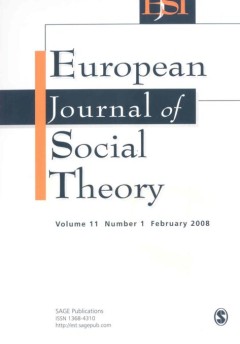
Space, Grossraum and Mitteleuropa in Some Debates of the Early Twentieth Century
The idea of Mitteleuropa began to gain momentum in the German geopolitical science of the beginning of the twentieth century. German geopolitics, which became famous through the works of Karl Haushofer, had set out a geographical and political notion of Mitteleuropa that supported a political project based on German expansion. As such, Mitteleuropa developed as both a political and scient…
- Edition
- Vol. 11, No. 2, Page 185-201
- ISBN/ISSN
- 1368-4310
- Collation
- -
- Series Title
- European Journal of Social Theory
- Call Number
- -
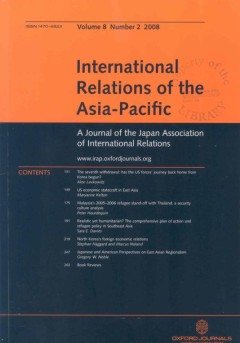
The seventh withdrawal: has the US forces' journey back home from Korea begun?
This article analyzes the reasons that led to the six United States forces withdrawals from South Korea between 1947 and 2008 and the Republic of Korea's responses to these policies. The article discusses the local and global aspects of these forces' functions and tasks and attempts to understand why Korea has not prepared itself for the withdrawal of the US forces throughout the years. The art…
- Edition
- Vol. 8, No. 2, Page 131-148
- ISBN/ISSN
- 1470-482X
- Collation
- -
- Series Title
- International Relations of the Asia-Pacific
- Call Number
- -

Affect, Relationality and the `Problem of Personality'
This article will consider the vitalist turn within sociology and social theory in the context of the emergence of the psychological sciences at the turn of the last century. One aspect of the revitalization of social theory characteristic of this 'turn' has been a renewed interest in the problem of affect, sensation and perception. The centrality of affect and perception is often framed throug…
- Edition
- Vol. 25, No. 1, Page 23-47
- ISBN/ISSN
- 0263-2764
- Collation
- -
- Series Title
- Theory, Culture & Society
- Call Number
- -

That We Obey Rules Blindly Does Not Mean that We Are Blindly Subservient to R…
Wiigenstein's remarks on rule-following are rightly understood to be corrosive of the project iof cognitive science. They do not, however, therefore privilege sociology as a competitor discipline - despite the protestations of some sociologists. Rules are invoked as explanatory devices in social theory, and Wittgenstein is criticized for failing to offer a conception of rule-following amenable …
- Edition
- Vol. 25, No. 2, Page 33-50
- ISBN/ISSN
- 0263-2764
- Collation
- -
- Series Title
- Theory, Culture & Society
- Call Number
- -
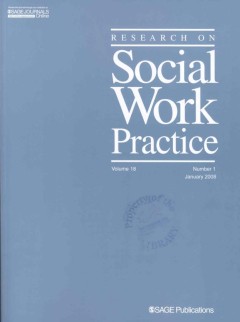
A Large Sample Investigation of Batterer Intervention Program Attrition: Eval…
Objective: The purpose of this study was to (a) investigate differences in demographic and psychological variables between treatment completers and dropouts among abusive men entering a court-mandated treatment program and (b) evaluate the goodness of fit of a logistic regression model for predicting attrition developed on a 16-week program by applying that model to the 26-week program. Method:…
- Edition
- Vol. 18, No. 3, Page 177-188
- ISBN/ISSN
- 1049-7315
- Collation
- -
- Series Title
- Research on Social Work Practice
- Call Number
- -
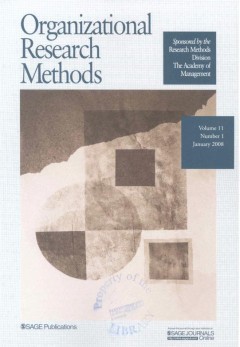
Estimating Effect Sizes From Pretest-Posttest-Control Group Designs
Previous research has recommended several measures of effect size for studies with repeated measurements in both treatment and control groups. Three alternate effect size estimates were compared in terms of bias, precision, and robustness to heterogeneity of variance. The results favored an effect size based on the mean pre-post change in the treatment group minus the mean pre-post change in th…
- Edition
- Vol. 11, No. 2, Page 364-386
- ISBN/ISSN
- 1094-4281
- Collation
- -
- Series Title
- Organizational Research Methods
- Call Number
- -
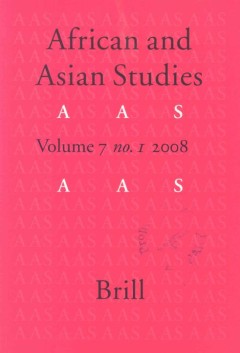
Historicizing and Contextualizing the Discourse on African International Law …
For the past 50 years or so, the media and intellectual discourses on African politics have general portrayed the continent as being in perpetual turmoil. The causes of such conflicts have been related, but not limited, to the outcome of the Berlin Conference of 1884-85 in which some of the European powers carved up the region in a zigzag fashion with little or no concern for the ethnic complex…
- Edition
- Vol. 7, No. 1 Page 77-99
- ISBN/ISSN
- 1569-2094
- Collation
- -
- Series Title
- African and Asian Studies
- Call Number
- -

The Empiricist Goose Has Not Been Cooked!
- Edition
- Vol. 40, No. 1, Page 104-109
- ISBN/ISSN
- 0095-3997
- Collation
- -
- Series Title
- Administration & Society
- Call Number
- -
- Edition
- Vol. 40, No. 1, Page 104-109
- ISBN/ISSN
- 0095-3997
- Collation
- -
- Series Title
- Administration & Society
- Call Number
- -
 Computer Science, Information & General Works
Computer Science, Information & General Works  Philosophy & Psychology
Philosophy & Psychology  Religion
Religion  Social Sciences
Social Sciences  Language
Language  Pure Science
Pure Science  Applied Sciences
Applied Sciences  Art & Recreation
Art & Recreation  Literature
Literature  History & Geography
History & Geography